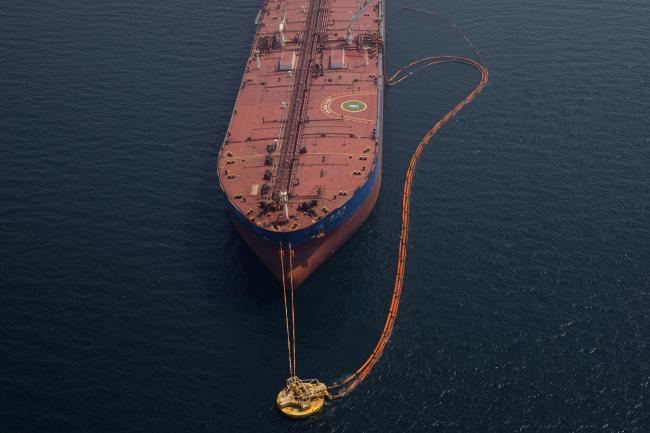(Bloomberg) -- China is doubling down on purchases of cheap oil that other buyers are shunning due to U.S. sanctions.
The world’s biggest crude importer boosted imports from Venezuela and Iran last month from January, with the shipments costing the least since November 2017, data released on Monday by the General Administration of Customs show. Both of the OPEC producers are subject to separate U.S. sanctions that have squeezed their sales to customers across the globe.
While the U.S. has granted several buyers waivers from its sanctions to continue buying Iranian oil, the volumes they are allowed to buy are restricted. What’s more, other nations such as Japan are limiting cargoes to a minimum to avoid even the possibility of breaching America’s rules. China, however, has imported about 446,000 barrels a day on average since November, customs data show.
The Asian nation is said to have been allotted 360,000 barrels daily under the exemption, though that excludes the share of oil owed to Chinese companies that hold stakes in Iranian projects.
In Venezuela’s case, the Donald Trump administration’s sanctions only effectively block shipments to the U.S. and don’t restrict flows to other nations. Still, big buyers such as India’s Reliance Industries Ltd. have shied away from purchases to avoid potential repercussions.
“Increased purchases from Venezuela may very likely be due to cost concerns,” said Li Li, an analyst with Shanghai-based commodities researcher ICIS-China. If the import price is low enough, oil giant PetroChina Co. can easily make a profit by selling to independent refiners, also called teapots, at a higher premium, she said by phone.
China bought 2.03 million metric tons, or 531,000 barrels a day, of crude from Venezuela last month, 17 percent more than January and the highest since December 2017, the customs data show. Imports from Iran rose 22 percent from a month earlier to 1.96 million tons.
China’s purchases are also probably spurred by a shortage of so-called heavy oil, which is more dense and sulfurous than lighter crude. The squeeze has been exacerbated by output cuts by the Organization of the Petroleum Exporting Countries and its allies as well as the U.S. sanctions.
Heavy Oil Premium
“As heavy oil gets more expensive, China of course wants to secure as much of cheap supplies as possible, especially from those who are friends with China,” Li Li said. With China’s refineries designed to process medium-to-heavy grades, supplies from the two nations at discounted price may be proving attractive to China’s state-owned giants.
The average price for Venezuelan supplies to China was about $46 a barrel, while Iranian shipments were worth around $60, both the lowest since late 2017, according to calculations based on customs data adjusted for exchange rate changes. Brent crude, the global benchmark, traded at around $67 a barrel on Monday.
PetroChina, the nation’s largest energy producer, resold Venezuela’s Merey crude at a premium of as high as over $5 a barrel against WTI in February and that spread widened to over $7 in March, according to an offer document seen by Bloomberg.
To contact Bloomberg News staff for this story: Sarah Chen in Beijing at schen514@bloomberg.net
To contact the editors responsible for this story: Pratish Narayanan at pnarayanan9@bloomberg.net, Ovais Subhani
©2019 Bloomberg L.P.
